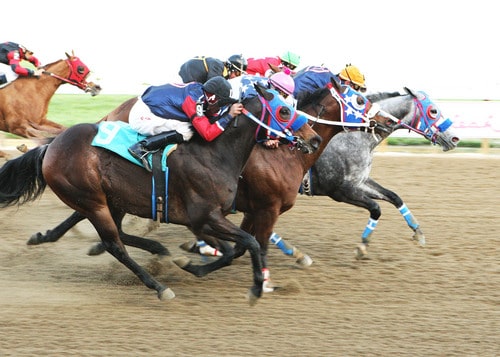In gambling, there are two different worlds—one where the activity is sanctioned and regulated and another where it is not. The former is where you’ll find licensed brick-and-mortar casinos, online casinos and sportsbooks. You can find the same types of betting options in the latter, but with unsanctioned gambling activity, the stakes are not entirely the same.
Licensed gambling avenues are subject to strict regulatory oversight. This regulation ensures fair play with casino games, table games and other forms of randomized gambling. In sports betting, regulation prevents any sort of foul play or fixing. In licensed gambling, all you stand to lose is the money you have wagered without any major supplementary repercussions. Gambling through unsanctioned avenues carves out a whole new set of risks, including slot machines or table games that have been tampered with, sports matches that have been fixed and races where the odds have been predetermined by sabotaging a race. The unsanctioned betting on horse or dog races also often includes abuse to animals as no regulatory body is involved to protect the well being of the animals. Secondary effects include involving yourself with unethical, and in some cases, harmful practices.
The Colorado horse racing industry is an example of this. Legal options for betting on horseraces are very popular. In Colorado, all legally sanctioned state based horse racing and betting takes place at Arapahoe Park in Aurora. Residents flock to the racetrack to enjoy the races and potentially make some money from them. These horses are kept in quality condition by their team of trainers and physicians. The whole industry is ethical and the betting side is regulated by a respected body of government, leaving no room for any illicit behaviors, illegal tampering or animal abuse.
However, there is a darker side to horse racing action happening outside of Arapahoe Park. Colorado’s FOX31 Problem Solvers recently uncovered a vast underground horse racing league. This league, known as Parejeras Racing USA, is one of several that draws hundreds of spectators to unsanctioned horse races. Everything seems legitimate on the surface with jockeys, racing quarter horses, trailers and a racetrack, but beneath the surface lies an unregulated and dangerous market. There is betting taking place, like in Arapahoe Park, only these bets are being placed through unofficial gambling brokers who walk around with large pockets of cash.
The environment is very casual and spectators line up along the sides of the track near the racing action. The race itself is handled in an irresponsible manner with jockeys whipping their horses too much and horses colliding into each other, often forcing them into nearby bystander areas. On top of the unregulated betting and dangerous riding conditions, there are reports of illegal performance enhancing drugs being administered to the horses. Caffeine and pain reliever concoctions are given to horses prior to races to make them run faster, fixing the matches in a particular horse’s favor and putting the horses in danger. These drugs are harmful to the horse and can lead to long-term health problems. Colorado authorities have been cracking down on the unsanctioned horse races, but not before this underground scheme has had a long run. The unsanctioned aspect is revealed through the harsh conditions of the horses, races and betting landscape, with no sort of oversight or control.
Unsanctioned betting is not exclusive to the Colorado horse racing industry. The American Gaming Association estimated $90 billion worth of bets on NCAA and NFL football games this year, with over 95% of those bets being placed through illegal unsanctioned means. There are numerous legally licensed sportsbooks that accept bets from US residents, however most of the sports betting community isn’t aware of them, resulting in participation in unregulated gambling activities. Going back to the Colorado example, their designated regulatory agencies overseeing licensed race tracks take steps to prevent any sort of tampering through drug testing horses and jockeys, mitigating the betting pools and ensuring horses are treated ethically. Unsanctioned gambling breeds unethical practices, so it should come as no surprise when harsh conditions or match fixing is discovered.
Betting through legal means keeps individuals separate from any sort of fringe or criminal activities. By restricting gambling to only legally sanctioned sources, you are participating in safe and ethical activities. Gambling is an exciting activity in nature, but there is no need to bring in dangerous behaviors in hopes of fixing a race or match. Society doesn’t stand for human athletes taking performance enhancing drugs, often stripping guilty parties of any accolades and banning them from the sport, so why don’t we hold horse racing to the same standard? Widespread regulation will prevent both illegal gambling and unethical practices. If you place bets through unsanctioned channels, then you are supporting all of the other criminal activities associated with it (yes, even indirectly). A smart gambler is an informed one, so knowing the industry you are engaging with is the soundest way of going about it, otherwise you are just part of the problem.

